
OR
Mental health challenges on the rise in Nepal's active population
Published On: October 11, 2023 07:00 PM NPT By: Pabitra Sunar
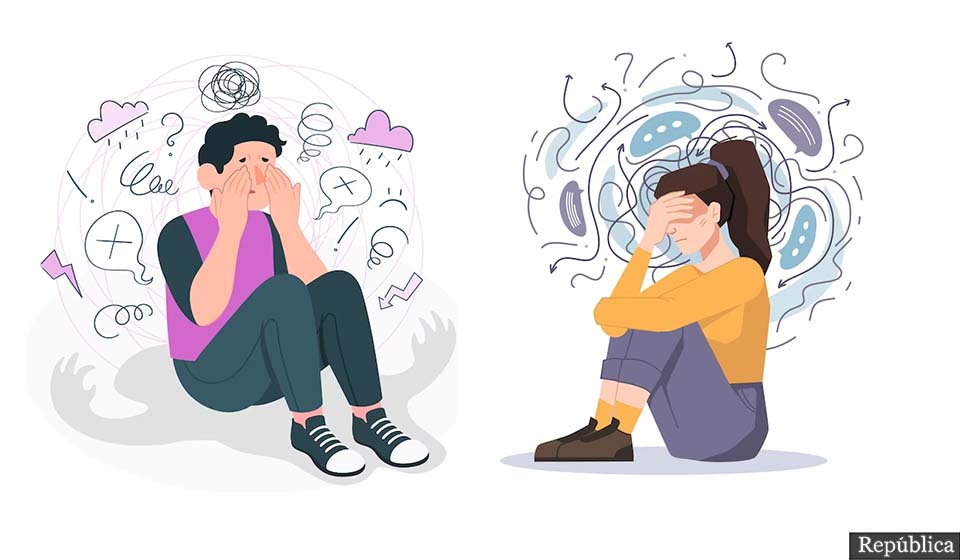
KATHMANDU, Oct 11: In Nepal, mental health issues are affecting individuals who may appear physically healthy but are grappling with hidden mental illnesses. Regrettably, not everyone can identify these struggles. Recently, a surge in psychosocial conditions has been noted among the active age group in Nepal. Medical professionals have raised concerns about the prevalence of anxiety and depression, particularly among individuals aged 15 to 39 in the country.
According to data received from the Nepal Mental Health Survey conducted in 2077 BS, approximately 10 percent of the total population in Nepal faces some form of mental health problem, with 2 percent experiencing anxiety and depression. Meanwhile, the Nepal Demographic and Health Survey from 2022 reveals that 11 percent of the population exhibits symptoms of anxiety, and 22 percent exhibit symptoms of depression, with a significant number of these individuals being women. Paradoxically, doctors point out that men experience more severe mental health issues than women. Astonishingly, statistics indicate that mental disorders constitute 18 percent of the total non-communicable diseases in the country.
Compounding this issue is a troubling increase in suicide rates within the active age group, driven by mental health challenges. Data from 2076 BS shows that while 4,500 people used to commit suicide annually, that number has now surged to around 7,000. Moreover, foreign employment has been significantly impacted, with suicide accounting for 10.4 percent of total deaths. Experts assert that the rising number of depression cases is a significant driver behind this disturbing trend. Dr Basudev Karki, a psychiatrist at Lagankhel Mental Hospital, explains, "Hidden depression or severe mental illness often drives individuals to contemplate suicide."
Recognizing the symptoms of anxiety is crucial for early intervention. These symptoms may include feelings of fear, excessive worry, nervousness, irritability, heart palpitations, and the sensation of something lodged in the throat. Failing to identify and address anxiety in a timely manner can lead to more severe complications. Similarly, the signs of depression encompass persistent feelings of sadness, a sense of inferiority, negative thoughts, insomnia, and a lack of interest in daily activities. Without prompt treatment, individuals may feel compelled to take drastic measures, unable to envision a return to normalcy.
Dr Karki emphasizes that while some individuals may have a biological predisposition to mental illness, others may develop anxiety and depression due to various psychosocial factors, economic challenges, violence, natural disasters, unemployment, ambitions, and family separations. He notes that mounting unemployment, political instability, economic hardships, strained relationships, and heightened aspirations appear to be contributing to the rising prevalence of mental health problems.
Medical professionals suggest that people can proactively prevent mental illness by fostering open communication within their families, cultivating positive thoughts, maintaining strong relationships, and engaging in activities such as yoga and meditation. Creating a nurturing environment within the family, community, and school is pivotal in this endeavor.
Despite constitutional and legal provisions guaranteeing the right to mental health in Nepal, implementation remains inadequate, according to Dr Karki. Even the provision of free medication to mental health patients in local health centers is often unavailable.
The World Health Organization (WHO) reports that approximately 15 percent of the world's population grapples with mental health issues, with four out of five individuals with serious mental health problems residing in low- and middle-income countries.
NHRC expresses concern
Meanwhile, the National Human Rights Commission (NHRC) has expressed grave concerns regarding the mental health situation in Nepal. The NHRC condemns the inhumane treatment of mental patients, including their restraint, confinement in cages, and the lack of appropriate care. The Commission criticizes the government of Nepal for not allocating sufficient resources and mechanisms for mental health.
The Ministry of Health and Population has revealed a shortage of mental health professionals in the country, with only 144 psychiatrists and three child psychiatrists serving Nepal's population. The NHRC urges the government to launch awareness programs on mental health and ensure accessible and high-quality mental health treatment. The Commission also underscores the need to protect the rights of mentally ill individuals to live with dignity.
You May Like This
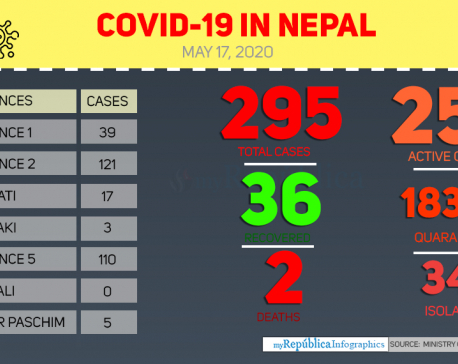
Health ministry confirms three new COVID-19 cases, number of total cases reaches 295
KATHMANDU, May 17: Nepal reported three new cases of COVID-19 on Sunday evening, taking the national tally to 295. ... Read More...
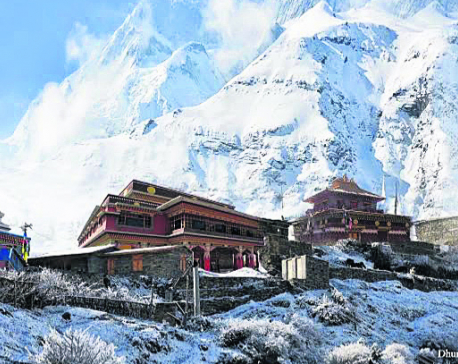
Dhurmus, Suntali to build ‘a Nepal within Nepal’
KATHMANDU, June 5: After successfully completing three settlement projects for earthquake victims and other communities, the actor couple Sitaram Kattel (Dhurmus)... Read More...

Nepal vs Kenya: Five crucial things Nepal looks for second match
KATHMANDU, March 12: Nepal is taking on Kenya on Monday in the second match of the ICC World Cricket League... Read More...

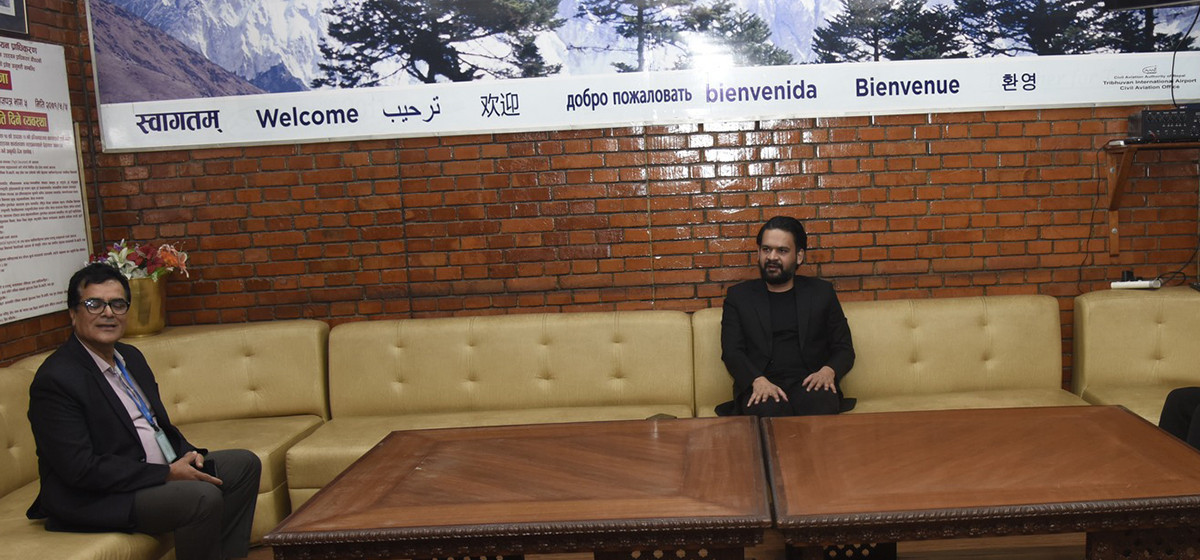

Just In
- Director General of Department of Money Laundering Investigation fails to submit property details
- Historian Gyanmani Nepal passes away
- Prez Paudel presenting govt's policies and programs for upcoming fiscal year in parliament (Live)
- Case filed at SC against PMO alleging exclusion of Dalit representation in current govt
- Police write to Department of Passport to revoke GB Rai's passport
- Patan High Court hearing cricketer Lamichhane’s case today
- NC to allow govt to present policies and programs in parliament
- 14 people dead as huge billboard falls amid storm in India






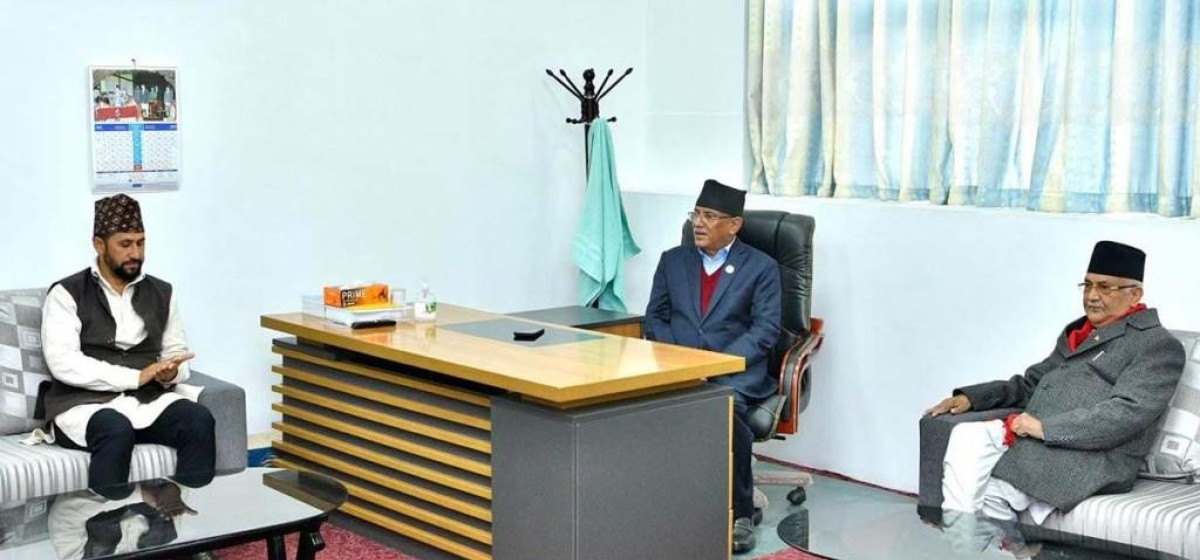
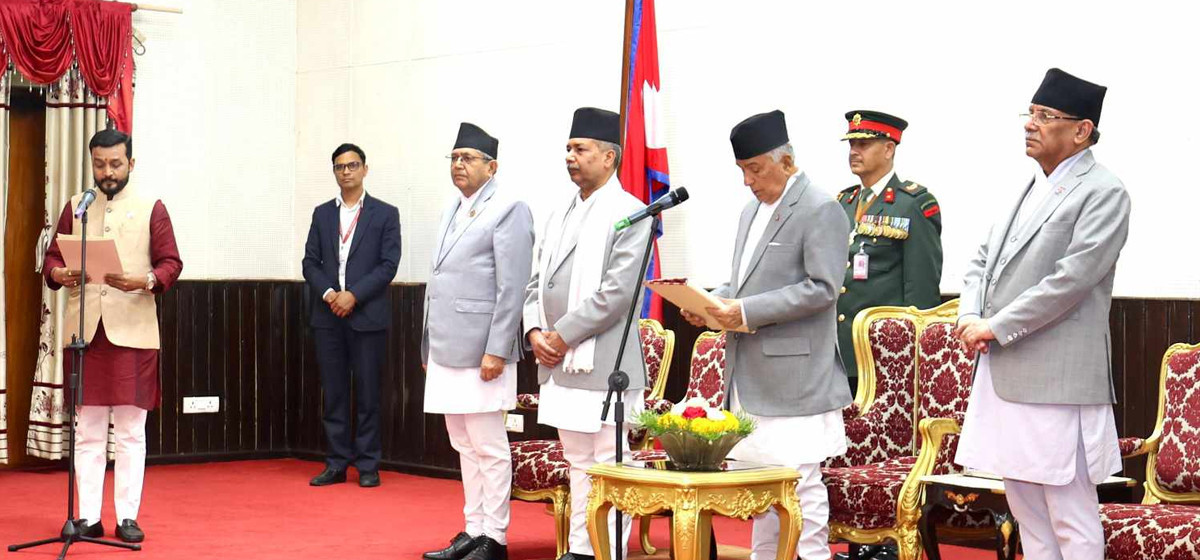
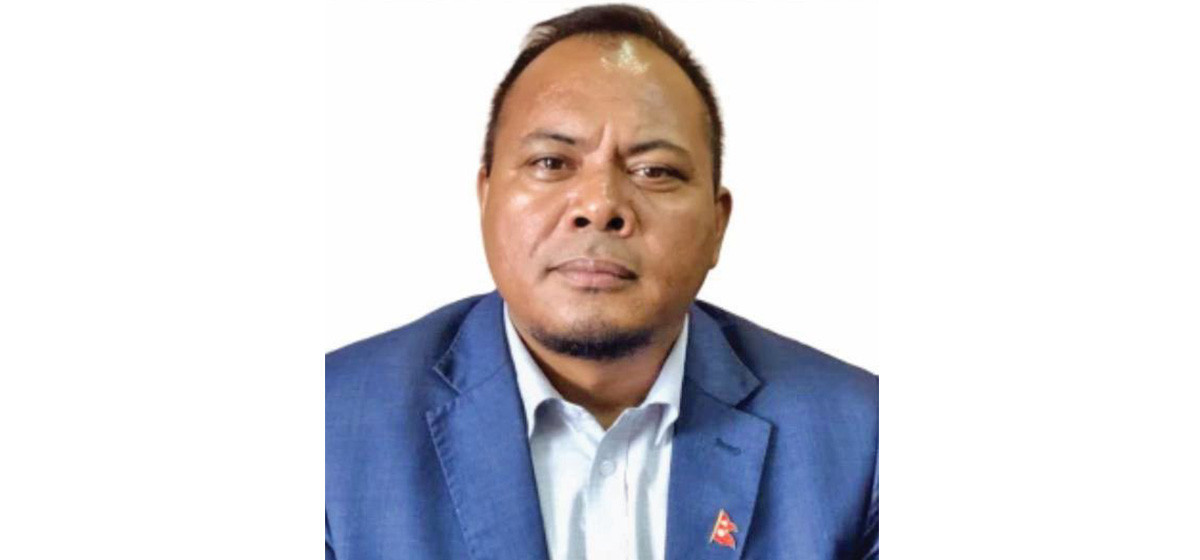



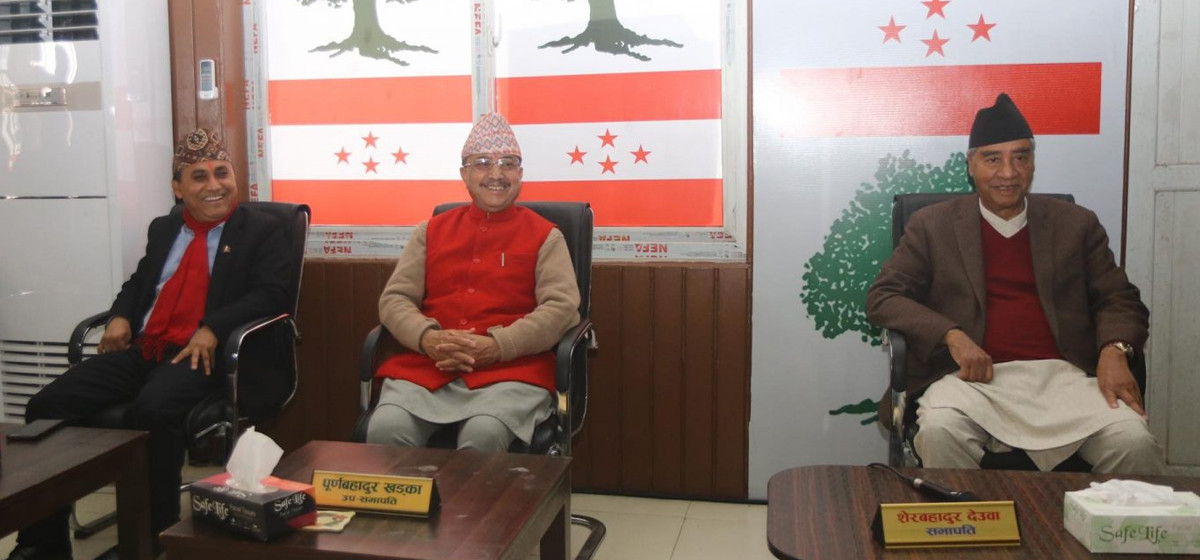

Leave A Comment